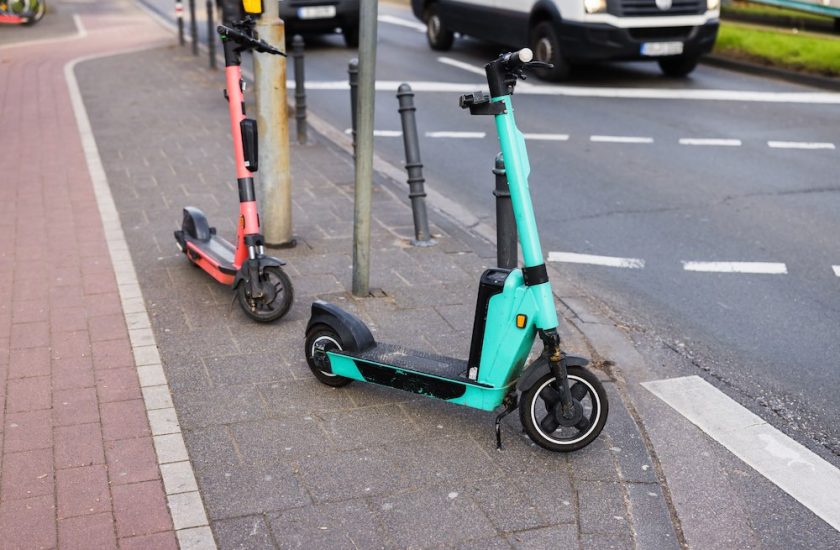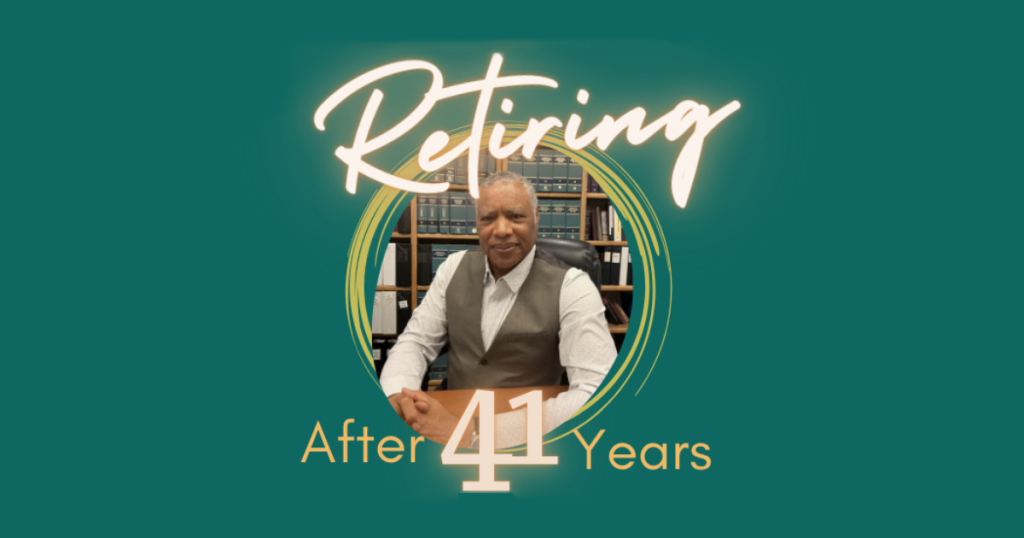In 2019, Tucson started a Pilot Program to bring e-scooter rentals to city streets. In 2021, the program became a Shared Mobility Permit Program that currently allows two e-scooter companies, Spin and Razor, to provide e-scooters for public use. While e-scooters may be a convenient mode of alternative transportation for some, the freedom of dockless e-scooters can pose a hazard and barrier to others. Since users can leave them anywhere, there is no guarantee that people will park them appropriately when their trip is complete. This means that sometimes e-scooters are left in the street or blocking sidewalks.
An e-scooter that is parked in a curb cut prevents someone who uses a walker or other mobility device from safely accessing the sidewalk. Additionally, an e-scooter parked in the middle of a sidewalk may not offer enough clear space for someone who uses a wheelchair to get around it, creating a barrier to access. For people who use mobility devices or are not able to navigate trip hazards due to disabilities, e-scooters can turn sidewalks into unmanageable and dangerous obstacle courses. Regardless of whether an e-scooter is blocking a sidewalk because it was improperly parked there or was knocked over accident, it poses the same hazards to people with disabilities making their way around the City.
Problems with dockless e-scooters blocking sidewalks have been well-publicized across the country. For example, the Downtown Commission in Austin, Texas, recently proposed firmer regulation and stricter requirements concerning e-scooters after experiencing difficulties with parking, particularly in the dense downtown area. Frustrated Austin residents took to social media to share and raise awareness about their concerns. Similar problems experienced in Los Angeles, California, have led to expanded options for reporting errant e-scooters, and more designated parking locations. Other cities in California, including San Diego and San Francisco, have also faced problems with e-scooters and sidewalk litter caused by improper parking.
On June 25, 2021 DRAZ wrote a letter, in partnership with Direct Advocacy & Resource Center, to the City of Tucson to bring attention to this issue. We asked the City to take action by creating e-scooter parking corrals in high ridership areas and suggested imposing fines on e-scooter companies if their scooters are found parked incorrectly, since monitoring parking is required by their permits with the City. We also suggested noisemakers be added to warn of a scooter’s approach. And finally, we requested the City include people with mobility and/or visual disabilities in the City’s decision-making process on this topic.
The current permit requirements can be found on City’s website on the E-Scooter Program page. One of the listed safety standards is that the e-scooters must have a warning bell or other sound device, which is a welcome addition that will help enhance the safety of both people out and about on Tucson’s streets, and e-scooter users. Although the current permit requirements also include that the e-scooter companies inform riders on how to properly park and correct reported parking violations within two hours, unfortunately e-scooters continue to be found blocking access to Tucson sidewalks and walkways.
Despite the fact that improved parking options was the number one recommended change for the e-scooter pilot program by community survey,[1] parking corrals are still only available along the 4th Avenue corridor, and City of Tucson parking enforcement is not yet issuing tickets for improper e-scooter parking. While citizens are encouraged to report complaints, such as parking issues, directly to the companies, this means that the City is relying on self-reporting by those companies to assess how often there are parking problems.
We hope that where the City is made aware of a problem they will take steps to find a solution. And since it is unclear that any community members with disabilities were involved in the e-scooter permit program development process, we urge the City to take steps to gather feedback on the Shared Mobility Permit Program from those most impacted by its implementation.
How often have you seen e-scooters blocking sidewalks and walkways in Tucson? Have you shared your story? Posted pictures to social media? Does the City know it’s an issue for you personally?
If Tucsonans want to be sure that the City knows about the issue and their concerns or other feedback, they can contact TDOT Concerns at 520-791-3154 or tdotconcerns@tucsonaz.gov.
You can also contact DRAZ if you have experienced barriers from an e-scooter blocking a City sidewalk or walkway in Tucson. To make an intake, you can call DRAZ’s intake line at 602-274-6287 (Phoenix area) or 800-927-2260 (toll free), or submit an intake online.
[1] City of Tucson E-Scooter Pilot Program Evaluation at 40 (showing more respondents answered “More designated places to park e-scooters” in response to Question 18 – In your opinion, what changes would make Tucson’s Pilot Program better or more effective, than any other proposed change).

